In 2010, a group of Puyuma Aboriginal musicians from Taitung’s Nanwang Tribe (南王部落) performed On the Road (很久沒有敬我了你) at Taipei’s National Concert Hall (國家音樂廳). Unusual for a musical performed at Taiwan’s top venue for classical music, it blended tribal sounds and dance with contemporary music and a Western orchestra.
But the ambitious project, a collaboration among record label Taiwan Colors Music (TCM, 角頭音樂), the National Symphony Orchestra (NSO, 國家交響樂團) and National Theater & Concert Hall (NTCH, 國家兩廳院), didn’t end when the curtain dropped. Kara-Orchestra (很久沒有敬我了妳), a cinematic complement to the musical, opens in theaters nationwide today.
Directed by Wu Mi-sen (吳米森) and produced by TCM President Zhang 43 (張四 十 三), the film examines topics — why and how Aboriginal music is altered or made palatable for a more sophisticated audience, what it means to be Taiwanese — that its theatrical counterpart only hinted at.
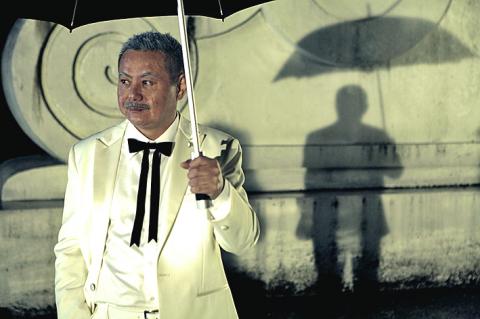
Photo courtesy of Activator Marketing Company
Incidentally, The Making of On The Road (很久), a 2011 documentary by Amis director Lungnan Isak Fangas, raised many of the issues addressed in Kara-Orchestra. That film featured interviews with artists and musicians who participated in the musical, including Hu, Hao-en, Pau-dull (陳建年) and music producer Cheng Chieh-jen (鄭捷任), and takes a deeper look into the question concerning indigenous music and its admission to the Han-Chinese centric system.
CONVENTIONAL STRUCTURE
Those familiar with Wu’s poetic and cinematic vocabulary, so eloquently shown in Fluffy Rhapsody (起毛球了, 2000) and Amour-Legende (松鼠自殺事件, 2006), will be surprised at the conventional three-act structure of this new offering. A young female musician, Feng Huo-yun (Youki, 侑紀), is appointed by NTCH director Chang San-lang (Tsai Chen-nan, 蔡振南) as the NSO’s new conductor. Conflicts erupt between Feng and principal violinist Tung jen-to (Leon Dai, 戴立忍) because Tung doubts the young conductor’s ability to lead the orchestra.
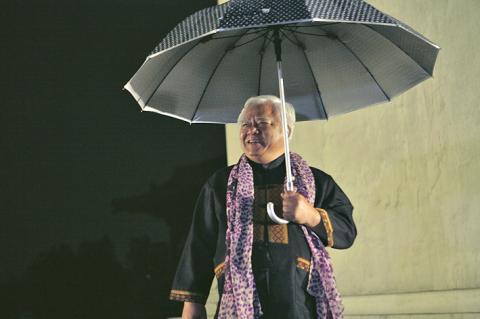
Photo courtesy of Activator Marketing Company
THE PRANK
During a rehearsal, an Aboriginal woman appears in the audience. She sings for a brief moment, and then disappears. It later turns out to be a joke by Tung and his friends, played by the legendary Kimbo Hu (胡德夫), Samingad (紀曉君) and Yangui Yasiungu (安歆澐), meant to show that Aboriginal music is as good as any show.
Tung’s mischievous prank, however, inspires Chang. Feng and Dai are then sent to the Aboriginal village to collaborate on a work. The two meet villagers and musicians such as Hao-en (昊恩) and the Nanwang Sisters (南王姐妹花). Feeling excluded at first, Feng gradually earns her place and reconciles with Tung.
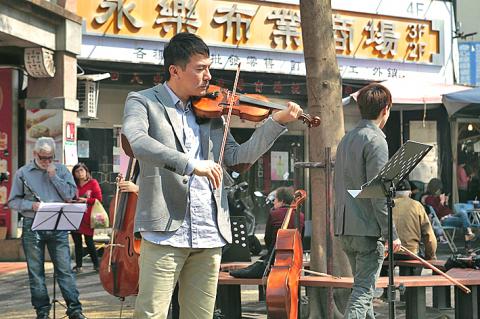
Photo courtesy of Activator Marketing Company
Back in Taipei, Chang loses his job to a wealthy Chinese businessman, amusingly played by exiled Chinese dissident Wang Dan (王丹). It’s promptly replaced with a Chinese music production.
The makeshift group of musicians, however, are determined to retake the stage.
SOCIAL ISSUES

Photo courtesy of Activator Marketing Company
While promising, the film lacks structure and dramatic nuance. The initial antagonism and later reconciliation between the two leads are less narratively cogent. Japanese-Taiwanese actress Youki might be good for a role that metaphorically reflects Taiwan’s past and present, but there is little intensity in her portrayal of an over-achieving young woman searching for her roots.
The film succeeds when it adopts humor to tackle serious issues. The question of whether tribal music and dance should be performed in a national theater is playfully touched on in a sequence where tribal villagers, who have no understanding of musical notation, happily use a karaoke machine to practice.
The presence of many indigenous musicians showing off their singing prowess is one of the movie’s many pleasures. Cameo appearances by public figures such as architect Roan Ching-yueh (阮慶岳), writer and former Taipei mayoral candidate Neil Peng (馮光遠) and Lin Wen-yi (林文義), a well-known novelist and social critic, suggest that the film’s non-Aboriginal characters are on their own kind of inner journey while discovering the nation’s indigenous heritage.
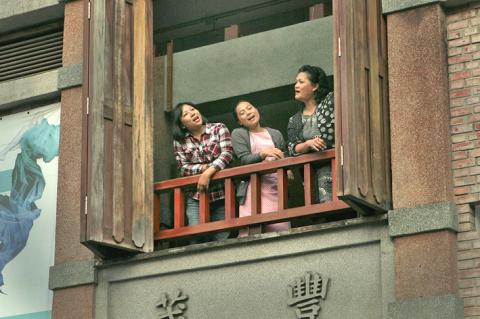
Photo courtesy of Activator Marketing Company
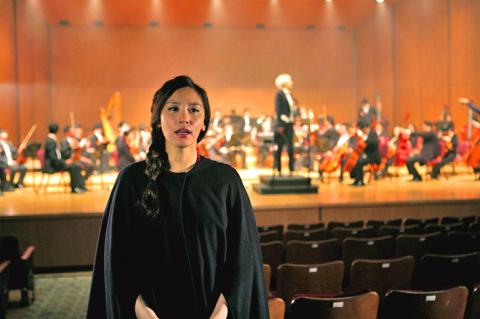
Photo courtesy of Activator Marketing Company
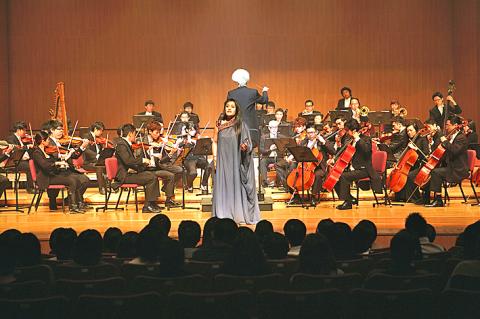
Photo courtesy of Activator Marketing Company
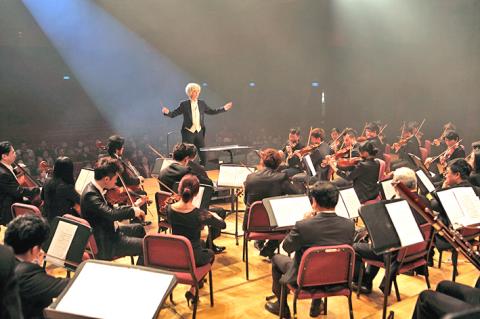
Photo courtesy of Activator Marketing Company

Dissident artist Ai Weiwei’s (艾未未) famous return to the People’s Republic of China (PRC) has been overshadowed by the astonishing news of the latest arrests of senior military figures for “corruption,” but it is an interesting piece of news in its own right, though more for what Ai does not understand than for what he does. Ai simply lacks the reflective understanding that the loneliness and isolation he imagines are “European” are simply the joys of life as an expat. That goes both ways: “I love Taiwan!” say many still wet-behind-the-ears expats here, not realizing what they love is being an

Every now and then, even hardcore hikers like to sleep in, leave the heavy gear at home and just enjoy a relaxed half-day stroll in the mountains: no cold, no steep uphills, no pressure to walk a certain distance in a day. In the winter, the mild climate and lower elevations of the forests in Taiwan’s far south offer a number of easy escapes like this. A prime example is the river above Mudan Reservoir (牡丹水庫): with shallow water, gentle current, abundant wildlife and a complete lack of tourists, this walk is accessible to nearly everyone but still feels quite remote.

It’s a bold filmmaking choice to have a countdown clock on the screen for most of your movie. In the best-case scenario for a movie like Mercy, in which a Los Angeles detective has to prove his innocence to an artificial intelligence judge within said time limit, it heightens the tension. Who hasn’t gotten sweaty palms in, say, a Mission: Impossible movie when the bomb is ticking down and Tom Cruise still hasn’t cleared the building? Why not just extend it for the duration? Perhaps in a better movie it might have worked. Sadly in Mercy, it’s an ever-present reminder of just

Google unveiled an artificial intelligence tool Wednesday that its scientists said would help unravel the mysteries of the human genome — and could one day lead to new treatments for diseases. The deep learning model AlphaGenome was hailed by outside researchers as a “breakthrough” that would let scientists study and even simulate the roots of difficult-to-treat genetic diseases. While the first complete map of the human genome in 2003 “gave us the book of life, reading it remained a challenge,” Pushmeet Kohli, vice president of research at Google DeepMind, told journalists. “We have the text,” he said, which is a sequence of